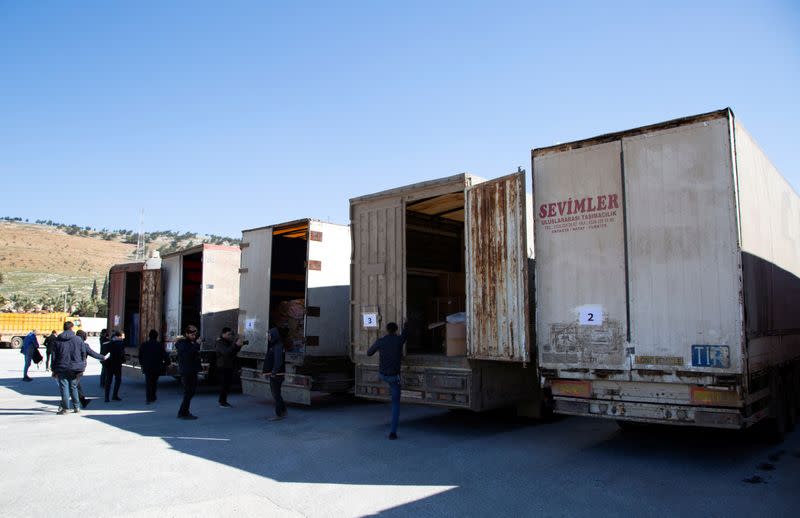Syrian govt approves aid delivery across frontlines-state media

BEIRUT (Reuters) -Syria's government has approved humanitarian aid delivery across the frontlines of the country's 12-year-old civil war, state media said on Friday, a move that could speed up the arrival of help for millions of people affected by Monday's deadly quake.
Aid distribution will take place in cooperation with the United Nations, the International Committee of the Red Cross and the Syrian Arab Red Crescent, state media said, to "guarantee the arrival of this aid to those who need it".
It did not say when deliveries would take place.
The United Nations has pushed for aid to flow more freely into Syria, especially into the country's northwest - an area controlled by rebels opposed to President Bashar al-Assad - via frozen frontlines and through crossings with Turkey.
The world body has delivered aid to the northwest since 2014 via Turkey, bypassing territory controlled by Assad.
The Syrian government, which lost control over swathes of territory during the war including nearly all of its border with Turkey, has long objected to the cross-border operation, saying it breaches Syrian sovereignty.
Aid has seldom moved from government-held territory to the northwest, where many Syrians fled to escape Assad's rule and some 4 million people were in need of aid before the earthquake made their predicament even worse.
More than 3,200 people have died in Syria from the earthquake, with many more injured and hundreds of thousands displaced. Turkish President Tayyip Erdogan said on Friday that the death toll in Turkey had risen to 19,388.
Dozens of planeloads of aid have arrived in areas held by Assad's government since Monday but little has reached the northwest, leading many residents to say they feel left alone.
State media reported that the government had also declared areas worst affected by the quake, Lattakia, Hama, Aleppo and Idlib, disaster zones and would set up a rehabilitation fund.
(Reporting by Timour Azhari; Writing by Timour Azhari and Tom Perry; Editing by Toby Chopra, Nick Macfie, William Maclean)

